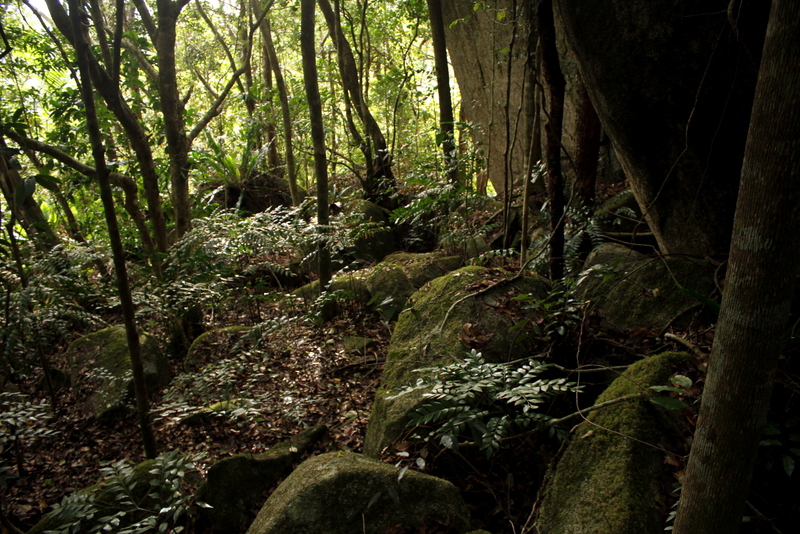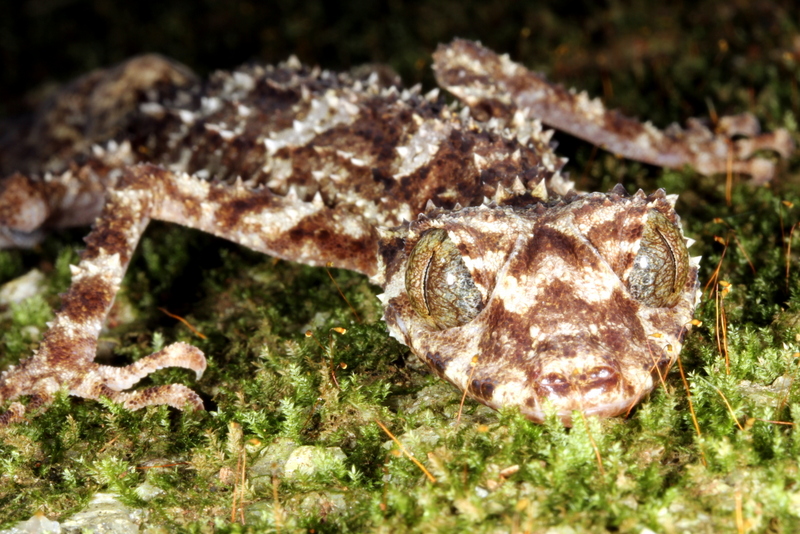Sky Islands: Lost & Found Worlds
Cape Melville 'sky island' (credit: Conrad Hoskin, JCU)
A tenant of biogeography is that odd creatures evolve on islands. Charles Darwin and Alfred Wallace discovered this fact of natural selection while investigating plants and animals in the Galapagos and Borneo. Their discoveries led to this central aspect of evolutionary biology:
"Islands" can be surrounded by water, savannas, deserts, or even boulders but a defining characteristic is that organisms living there are separated by distances and an inability to disperse to surrounding areas. This separation allows evolution to create unique organisms that often have odd characteristics."
Amazing discoveries are still being made in these 'lost worlds' on top of isolated mountains. Conrad Hoskin, of James Cook University in Queensland, has been investigating unknown species on a 'sky island' in the far north of tropical Australia. Animals there have been isolated from any related species for millions of years. Hoskin, and colleagues from Harvard University, had to be helicoptered into the isolated mountains of Cape Melville National Park on the Cape York Peninsula because access was impossible otherwise. The entire mountain range consists of massive boulders the size of houses piled on top of each other.

Cape Melville NP "Sky Island" forests (credit: Conrad Hoskin, JCU)
Hoskin, a Professor of biodiversity and conservation at James Cook, identified a new species of leaf-tailed gecko and commented: “Finding three new, obviously distinct vertebrates would be surprising enough in somewhere poorly explored like New Guinea, let alone in Australia, a country we think we've explored pretty well."
He might have also commented that the gecko is perfectly camouflaged to its strange and isolated boulder strewn environment. Its skin is mottled perfectly to blend in with the trees and rocks of its 'island' habitat.

Leaf-tailed gecko, Saltuarius eximius (credit: Conrad Hoskin, JCU)
The field ecologist continued: “The top of Cape Melville is a lost world. Finding these new species up there is the discovery of a lifetime - I'm still amazed and buzzing from it.”
Other discoveries remain to be observed and characterized in 'lost worlds' elsewhere. Darwin and Wallace would have understood Hoskin's excitement in making hia new findings. WHB